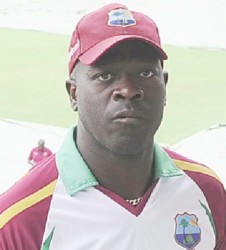By Dr Rudi Webster
What should we expect from the next coach?
The West Indies Cricket Board (WICB) and coach Ottis Gibson recently parted company and the board is now searching for a new coach to revive the team. Let’s hope that it chooses wisely this time and not repeat its mistakes of the last decade. M.S. Dhoni once told me that the main difference between good organisations and the others is the interval between mistakes. Good organisations make mistakes, learn from them and hardly ever repeat them. Lesser ones keep repeating them.
Performance is not only influenced by history and past experiences but also by goals and visions formulating the future. Our last three coaches seemed to have a limited and fuzzy picture of what they wanted the team to achieve and become and acted as if our cricket did not have a rich and successful history.
Why did the Worrell/Sobers and Lloyd/Richards teams play so well? Why is Lloyd’s team universally regarded as one of the best teams in the history of sport? What worked for these teams and why do we have so little of it now?

Good coaches create environments in which players learn, grow and play to the best of their ability. In the last decade our players did not learn enough from their coaches to improve performance or change the fortunes of the team. Were the coaches poor teachers? Did they focus on the wrong things? Were their teaching methods out of sync with the learning style of the players? Did they understand the beliefs, values, culture and motivational profiles of the players? And did they truly comprehend the role of the coach?
Sir Garfield Sobers once told me that if he were a coach he would initially devote most of his time teaching the basics of the game – physical and mental – but would then spend an equal amount of time teaching the players how to identify and deal with the many situations they will face in the game. He feels that this combination gives the player the best chance of doing well.
In schools, why do some teachers succeed in getting ‘average’ students to learn while other teachers fail to do so? Successful teachers begin with the belief that all children can learn if properly taught. It is amazing to see what can really happen when teachers believe – and make their children believe – that they can learn whatever they put their mind to.
Expectation and belief are extremely powerful. When athletes are made to believe that they can truly make a difference to the performance of the team they bring with them a level of motivation and discipline which when correctly directed satisfy a major requirement for success. Shouldn’t this then be a major priority of the coach?
In an excellent Frank Worrell memorial lecture in Trinidad recently, Sir George Alleyne quoted Sir Wesley Hall as saying that Frank Worrell was a great man-manager who spent a lot of time getting to know and understand his players. He never denigrated them publicly. And Cammie Smith is quoted as saying that Worrell spent as much time speaking about life and living in personal interaction as he spent in discussing cricket. Such was the rapport and respect that there was ready compliance with his instructions on and off the field, because one did not want to disappoint the skipper.
The importance of man-management cannot be overstated. According to US General Omar Bradley, the greatest leader in the world could never win a campaign unless he understood the men he had to lead. Good coaches know that plans and goal charts do not accomplish performance and that strategies are worthless if they are not well executed. It is the players who get things done. Players breathe life into the team’s goals and strategies. At the end of the day it is competent, well trained, highly disciplined and highly motivated players that are the key to the team’s success. Coaches who can outline plays on a blackboard are dime a dozen. The ones who win get into their players and motivate them.
Clive Lloyd built his leadership on three strong pillars. The first was an agenda for change that included a clear and detailed vision of what he wanted his team to achieve and become, as well as an intelligent strategy to achieve that vision. And he made sure that the players bought into that vision and strategy. Second he selected a group of competent and highly motivated players who were committed to implementing his strategy. Third he got rid of the insularity, indiscipline, bad habits and weak excuses that were harming the team. Playing better is often more about unlearning or removing bad habits, fears, indiscipline and outmoded traditions than about learning or adding new ones.
Good coaches focus strongly on execution and spend a lot of time motivating, communicating, facilitating and monitoring. They motivate by coaxing, praising, kicking, correcting, and inspiring. They communicate by telling and listening, informing each member about his role and place in the team, and by giving and accepting feedback. They facilitate by linking players’ aspirations to the common vision and by building good relationships with them. And they monitor by putting people and systems in place to oversee the process.
Fitness and technique are important parts of coaching but should be servants not the master. The new coach will do well if he understands this, broadens his agenda, concentrates on improving the players’ strategic and mental skills and pays attention to the wise words and examples of our great players.
(Note: Rudi V. Webster is the author of Think Like a Champion).





